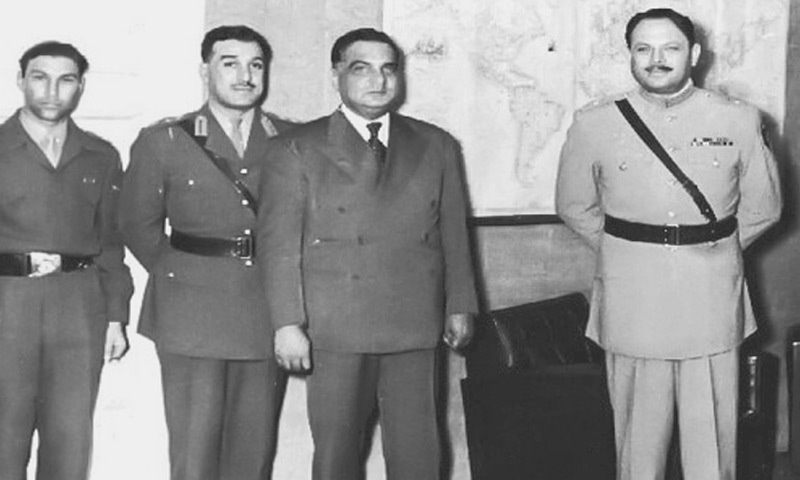by SYED KHAWAR MEHDI


Excerpts from Iskander Ali Mirza’s memoirs.
Iskander Ali Mirza is a controversial figure in Pakistan’s history. Trained at Sandhurst and having served in the British Indian Army, he became a political figure in Pakistan after Independence. As interior minister he helped oust Governor-General Ghulam Muhammad in 1955 and took over his position. Later, he would be elected as president under the 1956 constitution promulgated under his watch. Accused of constantly meddling in political affairs as president, he also promulgated Pakistan’s first martial law in 1958, which saw his own ouster by the army commander Gen Ayub Khan. Sent into exile by Gen Ayub, he was never allowed to return and died in the UK in 1969.
Hassan Ispahani (HI): In London, on the 23rd of September 1967, Iskander, we are meeting in an excellent atmosphere, good weather and, above all, in a free country. We can therefore talk as we like — [long pause]
For years… which I want to clear with you today. You know as well as I, that neither of us is going younger and time is flying fast in keeping with our modern jet age. So, with your permission and consent, I shall put to you a few questions to which I hope you will give appropriate answers. I think that this little talk will certainly be good for the future historians at least. Today you are condemned for all that has happened during the period that you held the reins of power in Pakistan and President Ayub’s book, published recently, appears to have put a royal seal on your mismanagement and misfeasance. Shall I start?
Iskander Mirza (Im): Yes.
HI: Thank you. I shall. To start with, I shall go back a little to your early period of Governor-Generalship and Presidentship. Was it necessary for you and Gurmani to bring into being a child like the Republican Party which I often anticipated will die as soon as you [were] deposed or left office? Such parties, as in the Republican Party have existed in the past, exist today and may or will exist in the future — these parties do not grow from the grassroots and, therefore, when their creators are no more, just vanish into thin air. Will you give me some information on the reasons that prompted you to start a party when you were in power?
IM: In order to make the story complete, it is very necessary to go still further back, ie in 1954 September. I think you remember that, one day, you came in London to the hotel I was staying at and told me, ‘Let us go to the airport’, as Prime Minister Mohammad Ali Bogra was returning from the United States. So I accompanied you to the airport and, before our arrival, apparently, Mohammad Ali Bogra and Chaudhry Muhammad Ali [the fourth prime minister of Pakistan] and the party had arrived at the airport. As soon as Mohammad Ali Bogra saw us, he said don’t you know that there is a great deal of trouble in Karachi and that they have just heard from one of the ministers, Mr Malik, on the telephone that Governor-General Ghulam Muhammad is about to declare martial law.
I knew nothing about it and was astounded, and just then Gen Ayub also came from America and he also joined us. I told Ayub what I [had] heard and he took me aside and he said, ‘Don’t propose anything because, before leaving for America, I have been promised to by Governor-General Ghulam Muhammad that I shall be asked to take over the country.’ So I said, look, this would be a very stupid thing to do; he is a very sick man and you must not take everything he says seriously. Let us [take] time and see how things come about when we return to Karachi.
Then Mohammad Ali Bogra asked me if I could get a special aeroplane, so that we could get there quickly. Well, I tried to get a Canberra from the Royal Air Force, but it was not possible, so another aeroplane, I think it was an Argus, was placed at our disposal. So we all, including Mr [Mirza Abul Hassan] Ispahani who was then High Commissioner, flew to Karachi without even saying goodbye to my wife and the same happened to the High Commissioner.
Dawn for more
(Thanks to Razi Azmi)
